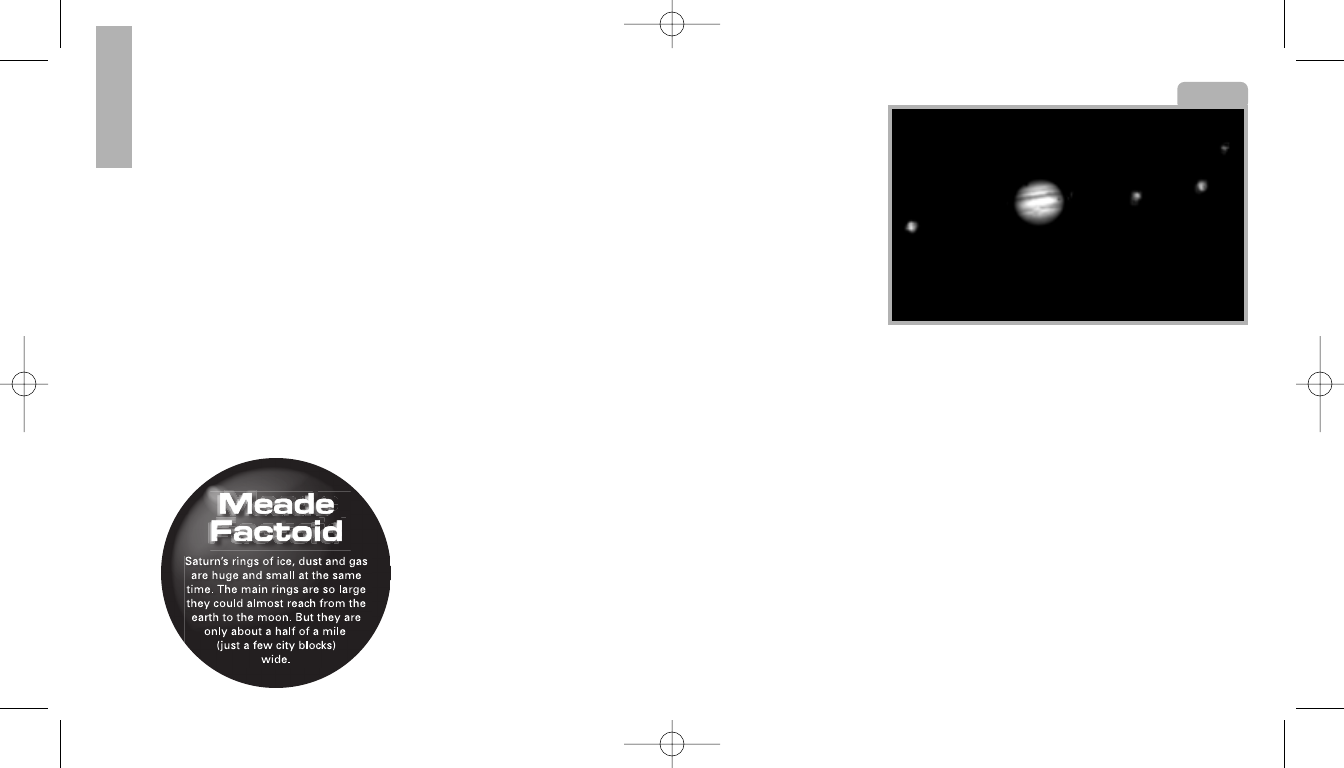
Any small telescope can see the four
Galilean moons of Jupiter (Fig. 5),
plus a few others, but how many
moons does Jupiter actually have?
No one knows for sure! Nor are we
sure how many Saturn has either. At last
count, Jupiter had over 60 moons, and held a
small lead over Saturn. Most of these moons
are very small and can only be seen with
very large telescopes.
Probably the most memorable sight you will
see in your telescope is Saturn. Although you
may not see many features on the surface of
Saturn, its ring structure will steal your
breath away. You will probably be able to see
a black opening in the rings, known as the
Cassini band.
Saturn is not the only planet that has rings,
but it is the only set of rings that can be
seen with a small telescope. Jupiter’s rings
cannot be seen from Earth at all—the
Voyager spacecraft discovered the ring after
it passed Jupiter and looked back at it. It
turns out, only with the sunlight shining
through them, can the rings be seen. Uranus
and Neptune also have faint rings.
Optional color filters help bring out detail
and contrast of the planets. Meade offers a
line of inexpensive color filters.
What’s Next? Beyond the Solar System:
Once you have observed our own system of
planets, it’s time to really travel far from
home and look at stars and other objects.
You can observe thousands of stars with
your telescope. At first, you may think stars
are just pinpoints of light and aren’t very
interesting. But look again. There is much
information that is revealed in stars.
The first thing you will notice is that not all
stars are the same colors. See if you can find
blue, orange, yellow, white and red stars.
8
The color of stars sometimes can tell you
about the age of a star and the temperature
that they burn at.
Other stars to look for are multiple stars.
Very often, you can find double (or binary)
stars, stars that are very close together.
These stars orbit each other. What do you
notice about these stars? Are they different
colors? Does one seem brighter than the
other?
Almost all the stars you can see in the sky
are part of our galaxy. A galaxy is a large
grouping of stars, containing millions or
even billions of stars. Some galaxies form a
Fig. 5
Polaris 60 AZ - AR 3/10/06 11:48 AM Page 10


















